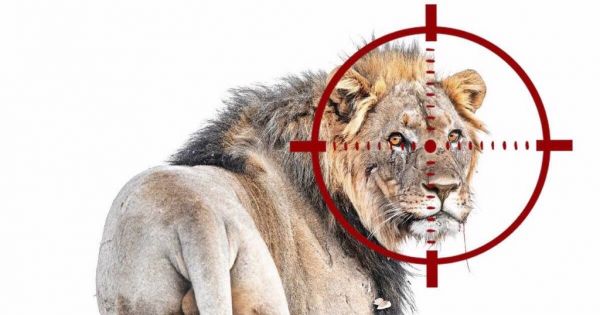Finding Kenya's Lost Music One Record at a Time
9th Apr, 2019 at 2:38PM
In 2018, Universal Music Group bought a majority stake in Kenya's AI Records in 2018. The aim of the partnership was to digitise AI Records catalogue, which includes great Kenyan bands such as Orchestra Super Mazembe, Slim Ali and the Hodi Boys, and Afro70. The history of the involvement of P.W. Andrews & Co. Ltd., and the Andrews family within the record industry in Kenya dating back to 1957.John Andrews, the head of AI Records, at their offices shared some insight into AI Records' journey:The BeginningMy father (Mike Andrews), as a typical teenager living in Kenya with his parents, loved the pop music of the time. He had a radio show on Cable & Wireless and led a band called 'The Silhouttes'. In his endeavour for the radio programme and The Silhouttes to be 'with it' he contacted various record companies in England and South Africa to send samples of their latest releases and 'tops of the pops'. Luckily he got a good response, and the 'up to date' music started to arrive.In spite of Cable & Wireless' management reservations, the show gained popularity and listeners would request for the records in the local music shops. To cater to this demand, Mike and his father set up a 'record division of P.W. Andrews & Co. Ltd. They began importing and distributing to local shops such as E.A. Music Stores, Assanand & Sons and Shankardass & Sons.With an export market established, the same record companies sought to know more about the existing 'African Records' markets in Kenya. There was already a vibrant interest in local recordings with Asian 'Duka Wallahs' recording and selling the old 78 r.p.m. shellac records by the thousands. The biggest consumer market came from Nairobi, but smaller record distributors were active in Mombasa and Kitale, and over the border in Kampala and Jinja in Uganda. Manufacture of these 78 r.p.m. shellacs was mainly in the hands of East African Records Ltd., whose equipment and management were way behind the times. My dad (Mike Andrews) and his Father had awakened interest overseas, and over the next ten years ownership changed hands, E.A. Records sold out, new equipment was imported, record presses adapted from 78 r.p.m. shellac to 45 r.p.m. vinyl singles and 331/3 r.p.m. vinyl L.Ps. By the mid-1960s Kenya was 'in the record business'.In 1971 an International Group (Teal Records) joined the Andrews family in a 50/50 venture titled 'Andrews International Teal Records Ltd. (A.I.T. Records). Teal brought the International aspect to the table (RCA, Atlantic, Asylum, Electra and Warner) could be pressed under licence. As the Andrews, we had to get into the 'local recording' scene. My dad did that with a vengeance and soon the A.I.T. group of labels 'Sunguru', 'Lolwe', 'Africa'. 'Moto-Moto' and 'A.I.T.' really took off. Now we were selling International (Western) and African repertoires together.The recording scene continued to evolve, companies and personnel changing continuously. Polygram became the main manufacturer in the region. Teal sold their 50 per cent shares in A.I.T. and we became Andrews International (A.I.) Records wholly owned by my dad, Mike Andrews. His dad (the late P.W. Andrews) had passed on, and now Mike would expand AI. Records in the rest of Africa.What then transpired, was that musicians from around Africa started to stream into Kenya because there were very few platforms on the continent where musicians could record their music and present it in a format (45s and LPs) they could present to the public. They would travel from Zambia, Tanzania, Uganda and especially DRC to come and record at AIT. When the music was played on the radio, it became even more popular, and what that generated was a vibrant night club scene because as the musicians were recording and making money in Kenya so they didn't want to leave. They would hold shows in hotels and clubs, in between their recording sessions.As these recordings started to become more and more popular some bands like Super Mazembe, expanded across the whole of Africa. In time they got to tour in Europe, and other countries got a taste of our music. This encouraged the record companies to record more in the 70s, the market was flooded with music from Kenyan bands and other bands from across Eastern Africa.So what I am doing 30 or 40 years from then, is tracing this old historical music from our archives, that we recorded, and transferring it into digital format so that people can access it on streaming platforms.Is it hard to find this music?Yes. When cassette and compact disc came out, people thought vinyl had gone forever, so a lot of people threw out their vinyl records. Vinyl was heavy and bulky, and sometimes they'd melt in the sun. The world was getting smaller. Phones were getting smaller, and computers were getting smaller - and funny enough, the biggest expansion of music was that it became portable, giving it more reach.We are lucky because the majority of those old recordings, we kept in safe storage on quarter inch and half inch master tape. We are transferring this music - using new technology and new studios - straight to your phone. Because a lot of music was recorded in the old days, a lot never got released, so we have found hundreds of unreleased recordings at A.I. Records that we will now share.We discussed with Universal about our dream and they got on board because they have a passion for music from around the world, and they agreed to help us re-recreate and re-broadcast the old music, as well as, help us bring in new music.Going full circle...A.I. Records stopped doing multiple recording in the late 1990s because piracy was so bad and we felt quite ashamed that in doing all these productions, neither the artist, nor AI, was making any money, so we couldn't make ends meet. We did, however, manage to continue recording in a limited way to satisfy the overseas markets we had developed over the years, and while they expanded their catalogue, they have also given us the chance to continue with our passion, and AI will start recording East African artists again. So we have gone full circle. We have some new signings coming on, and we will give them our international push to make them famous.Back in the day (the 70s and 80s) outside of South Africa, East African music was big. We were heard throughout West Africa, even Cairo and Djibouti and Zimbabwe; especially in Zimbabwe our East African music dominated, in fact, they copied us. Besides broadcasting, the spread of East African music came from the pressing plants that were scattered in the region.As they pressed the records in the factories, they would listen to music, and what they liked, they took home with them on weekends to sell them. East African music had spread through that mechanism more than radio, i.e. 'by word of mouth' and we still find this is the way music goes around the world to this very day, albeit now it's via the internet.I believe Kenya can go back to being number 1 and producing a number one artist.





